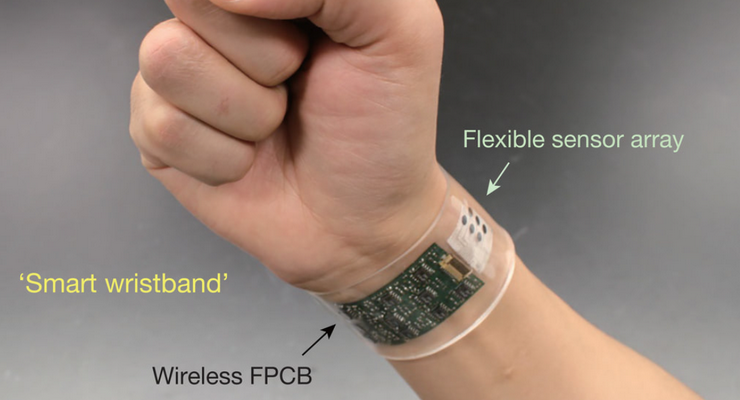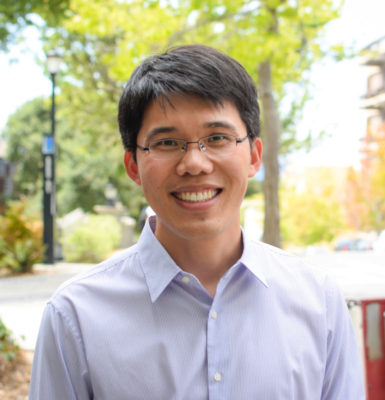
A group of researchers at Caltech is hard at work coming up with body-wearable or handheld sensors that can help monitor a person’s health at home or anywhere else.
One of the areas these devices work on is persperation analysis – examining the sweat that comes out of pores when engaging in physical activity, or when exposed to heat – that can help inform people in real time on whether they are healthy, or may be suffering from possible medical problems.
Dr. Wei Gao, assistant professor of medical engineering at Caltech’s Division of Engineering and Applied Science, says the research group that he leads has already demonstrated wearable sensor prototypes that can continuously collect information or data from the human body. The group has also collaborated with clinicians at a number of medical centers to test their sensors, especially on patients with diabetes, heart disease, cancers, and lung diseases.
“The wearable biosensing technology could enable large sets of data collection from people’s daily activities,” Gao said. “When coupled with big data analysis or machine learning, such technology will open the door to numerous fundamental and clinical investigations. Very importantly, it could play a crucial role in preventive care – providing early warning for timely intervention.”
Gao and his group will be presenting a discussion about their work on developing these versatile bioelectronic devices for fundamental and applied biomedical studies from 7 to 9 p.m. Thursday as part of Connect Week Pasadena, featuring a series of both in-person and virtual events that started last Sunday.
Connect Week is primarily organized by Innovate Pasadena and supported by various collaborating individuals and organizations.
“Our sensors are body-worn devices – similar to smart watches,” Gao continues. “They can continuously measure the health-related parameters (such as heart rate, blood pressure, glucose, hormones) and give people early warning of the abnormal health conditions.”

Last November, Gao lectured on recent advances his group had made as they worked on developing “fully-integrated skin-interfaced flexible biosensors” for non-invasive molecular analysis. The biosensors can be worn on the wrist, like any watch, and can continuously measure the metabolites, electrolytes, hormones, drugs, and other small molecules that come with perspiration.
These devices, he said, will not use batteries but instead be powered by the wearer’s human motion. The wearer, or his or her doctor, can then view the results of the analysis on a smartphone.
The Gao Research Group at Caltech is particularly focused on developing these bioelectronic devices for fundamental and applied biomedical studies.
“My group’s research at Caltech is highly interdisciplinary, bridging the fields of chemistry, materials, engineering, and medicine,” Gao said. “Through materials and device innovations, we design, optimize, and evaluate telemedicine sensors for a number of personalized healthcare applications.”
In Thursday’s discussion, Gao will be joined by Dr. Tim Mullen, a computational and cognitive neuroscientist, educator and entrepreneur.
For more information and to save your spot for this event, visit www.connectpasadena.com/event/


















